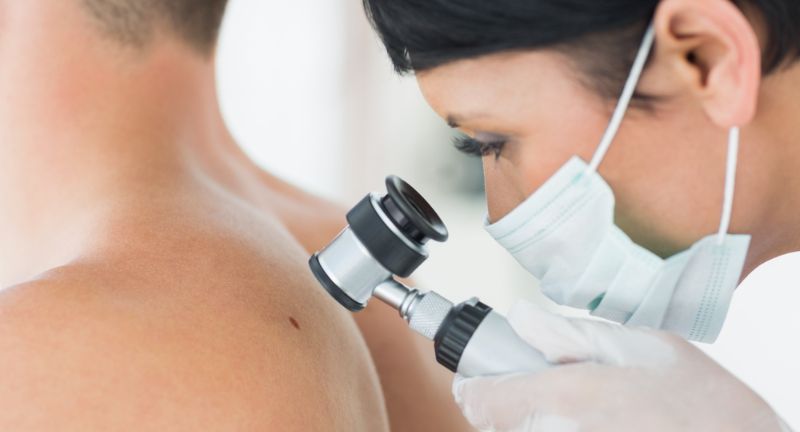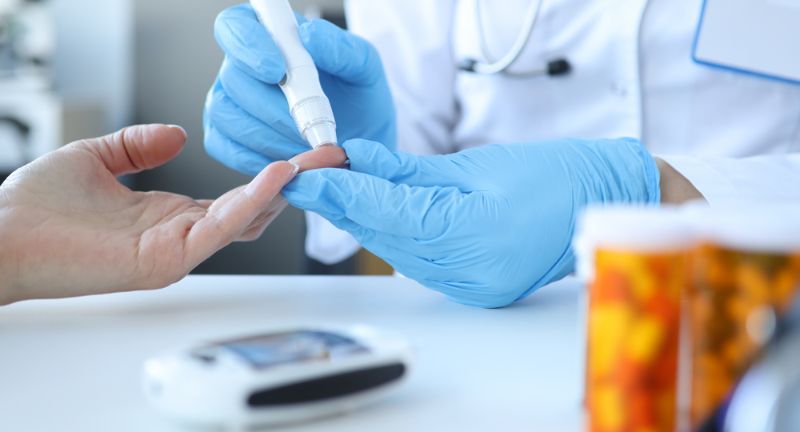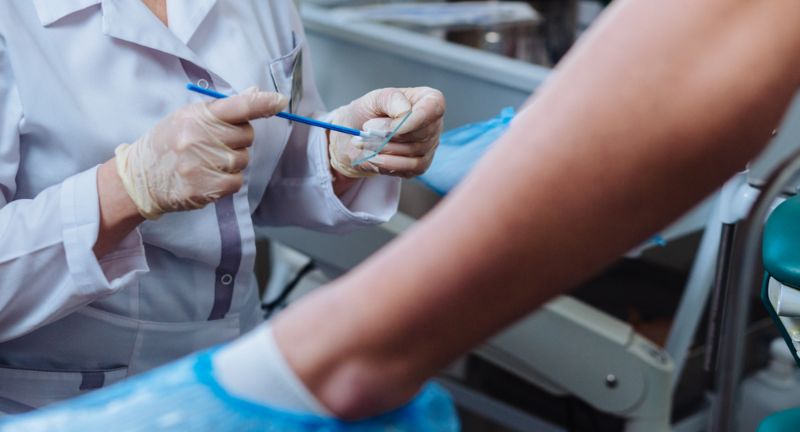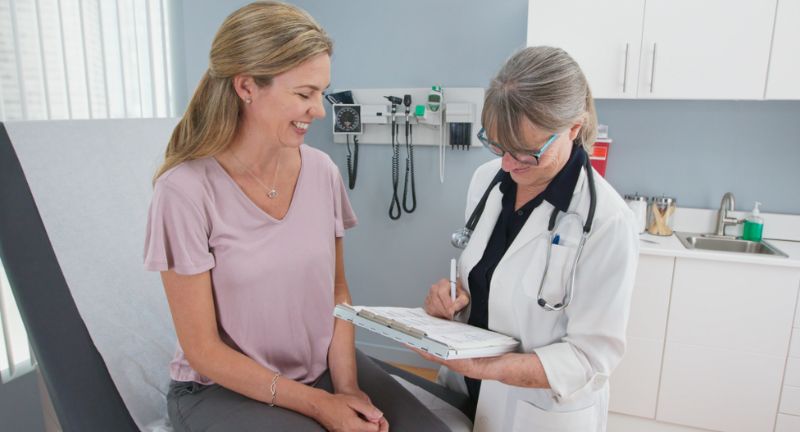HEALTH + FITNESS
Stay Healthy After 50: 15 Important Medical Tests
Published
2 months agoon

Shutterstock
Reaching the age of 50 marks an important milestone in life, and it’s a critical time to focus on your health. Regular health screenings can detect potential issues early, allowing for timely interventions that can significantly improve your quality of life. From heart health to cancer prevention, these tests cover a broad spectrum of conditions. Staying proactive about your health through these screenings can help you maintain a vibrant and active lifestyle. Here are 15 essential health tests you should consider after turning 50.
Blood Pressure Check

Shutterstock
High blood pressure can lead to serious conditions such as heart disease and stroke. Regular monitoring is essential to detect and manage hypertension early. It is often called the “silent killer” because it can cause significant damage before symptoms appear. By checking your blood pressure regularly, you can take steps to control it and reduce your risk of complications.
Cholesterol Test

Shutterstock
A cholesterol test, or lipid panel, measures the levels of various types of cholesterol and triglycerides in your blood. High levels of LDL cholesterol can increase the risk of heart disease and stroke. Knowing your cholesterol levels can help you and your doctor develop a plan to manage your cardiovascular health. Lifestyle changes and medications can effectively lower high cholesterol levels.
Blood Glucose Test

Shutterstock
Screening for diabetes with a blood glucose test is crucial, especially if you have risk factors such as obesity or a family history of the disease. This test measures the amount of glucose in your blood and helps diagnose conditions like prediabetes and diabetes. Early detection allows for timely intervention through lifestyle changes or medication. Managing blood sugar levels can prevent complications such as heart disease, kidney damage, and nerve problems.
Colonoscopy

Shutterstock
A colonoscopy is recommended every 10 years starting at age 50 to screen for colorectal cancer. This procedure allows doctors to view the inside of your colon and rectum to detect polyps or cancer. Removing polyps during the procedure can prevent them from becoming cancerous. Early detection of colorectal cancer increases the chances of successful treatment and survival.
Bone Density Test

Shutterstock
A bone density test measures the strength and density of your bones, helping to diagnose osteoporosis. This test is particularly important for postmenopausal women and men with risk factors for bone loss. Detecting osteoporosis early can lead to treatments that strengthen bones and prevent fractures. Maintaining bone health through diet, exercise, and medications can significantly improve your quality of life.
Mammogram

Shutterstock
A mammogram is an X-ray of the breast used to screen for breast cancer. Women aged 50 and older should have a mammogram every 1-2 years. Early detection of breast cancer through mammograms can lead to more effective and less invasive treatment options. Regular screenings are crucial for reducing mortality rates associated with breast cancer.
Pap Smear and HPV Test

Shutterstock
Regular Pap smears and HPV tests are essential for detecting cervical cancer and its precursors. Women should continue these screenings at least until age 65. These tests can identify abnormal cells in the cervix that may develop into cancer. Early detection through these screenings allows for early intervention and treatment, significantly improving outcomes.
Prostate Cancer Screening

Shutterstock
Men should discuss prostate cancer screening with their doctors to understand the benefits and risks. The prostate-specific antigen (PSA) test measures the level of PSA in the blood, which can be elevated in prostate cancer. Screening can help detect prostate cancer early when it is more treatable. However, it is important to consider the potential for false positives and the implications of further testing and treatment.
Eye Exam

Shutterstock
Regular eye exams are important for detecting vision problems and eye diseases. Conditions like glaucoma, age-related macular degeneration, and cataracts become more common with age. Early detection through eye exams can prevent vision loss and improve quality of life. Additionally, eye exams can reveal other health issues such as diabetes and high blood pressure.
Hearing Test

Shutterstock
Hearing loss is a common issue as people age, and early detection is crucial. A hearing test can identify hearing impairments that may affect communication and quality of life. Addressing hearing loss early with hearing aids or other interventions can improve social interactions and overall well-being. Regular hearing tests are recommended to monitor changes in hearing ability over time.
Thyroid Function Test

Shutterstock
Screening for thyroid disorders with a thyroid function test is important for overall health. The thyroid gland regulates metabolism, energy levels, and other vital functions. Detecting hypothyroidism or hyperthyroidism early allows for effective management with medication. Symptoms of thyroid disorders can be subtle, so regular testing helps ensure proper thyroid function is maintained.
Skin Exam

Shutterstock
Regular skin exams by a dermatologist can detect early signs of skin cancer. Skin cancer, including melanoma, can be life-threatening if not caught early. A skin exam involves checking moles, freckles, and other skin lesions for changes that might indicate cancer. Early detection and treatment of skin cancer can significantly improve outcomes and reduce the risk of severe complications.
Liver Function Test

Shutterstock
Liver function tests measure various enzymes and proteins in the blood to assess liver health. These tests can detect liver diseases such as hepatitis, fatty liver disease, and cirrhosis. Early detection of liver problems allows for interventions that can prevent further damage. Lifestyle changes, medications, and monitoring can help manage liver conditions effectively.
Kidney Function Test

Shutterstock
Kidney function tests, such as the glomerular filtration rate (GFR), assess how well your kidneys are filtering blood. Detecting kidney disease early is crucial for preventing progression to kidney failure. Regular testing can help manage conditions like hypertension and diabetes that can affect kidney health. Proper management includes lifestyle changes, medications, and regular monitoring to maintain kidney function.
Vaccinations

Shutterstock
Staying up to date on vaccinations is crucial for preventing serious illnesses. Important vaccines for those over 50 include the flu shot, shingles vaccine, pneumococcal vaccine, and Tdap booster (tetanus, diphtheria, pertussis). These vaccines help protect against infections that can have more severe consequences as you age. Discussing your vaccination status with your healthcare provider ensures you receive the necessary immunizations.
Conclusion

Shutterstock
Taking charge of your health after 50 is a proactive step towards a longer, healthier life. Regular screenings and tests can catch potential health issues early, allowing for more effective treatments and better outcomes. Remember, staying informed and working closely with your healthcare provider is key to managing your health. By prioritizing these essential tests, you can enjoy peace of mind and focus on living your best life. Embrace this new chapter with confidence, knowing you are doing everything you can to stay healthy.
Related Topics:

More From Lifestylogy
-


Former MTV Veejay Opens Up About Breast Cancer Diagnosis
-


Doing This While Driving Could Be An Early Sign of…
-


Foods to Avoid Before a Workout
-


Jennifer Aniston Reveals Battle with Insomnia
-


EPA Approves Two Disinfecting Sprays to Protect Against Coronavirus
-


Banish Belly Fat with These Top Tips
-


The Dirty on Makeup Brushes
-


Top Five Reasons to Drink Almond Milk
-


CDC Revises its Travel Advisory Information